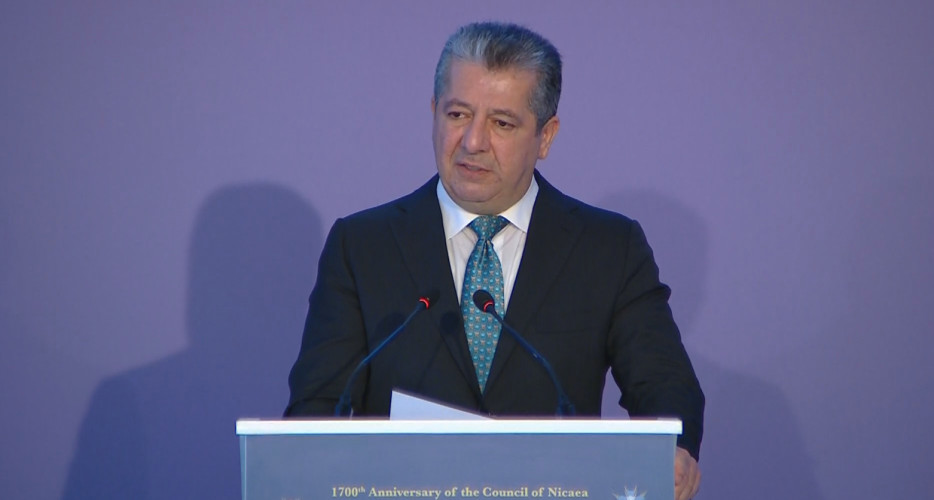
Peregraf
Kurdistan Regional Government (KRG) Prime Minister Masrour Barzani hailed the long-awaited resumption of oil exports through the Iraq-Türkiye pipeline, describing it as "a major achievement for all Iraqi people, especially those in the Kurdistan Region." He emphasized that the deal, overseen by Iraq’s State Oil Marketing Organization (SOMO), represents a turning point for the region’s economy and Iraq’s national oil policy.
Speaking at the annual academic conference commemorating the "Neqiyeh" in Erbil, Barzani called the restart of oil flows "a significant historical event" and extended his gratitude to all parties who helped secure the agreement. Importantly, he singled out the United States for its "crucial role" in facilitating the breakthrough.
"They were truly great supporters in bringing this process to fruition," Barzani said, highlighting the backing of the U.S. government, its ambassador in Washington, Baghdad, and the consul in Erbil.
A Return to Global Markets
On Saturday morning, oil from the Kurdistan Region flowed again through the pipeline to Turkey’s Ceyhan port for the first time in 30 months. A source from the KRG’s Ministry of Natural Resources told Peregraf that the oil had crossed into Turkish territory and was expected to reach Ceyhan and international markets later in the day.
The Region is currently exporting around 190,000 barrels per day, while reserving 50,000 barrels for domestic consumption.
Oil exports were halted on March 25, 2023, after an international arbitration court ruled in favor of Baghdad in its dispute with Ankara over the pipeline. The suspension deprived the Kurdistan Region of vital revenues and cut about 230,000 barrels per day from global markets.
After prolonged negotiations, Erbil, Baghdad, and international oil companies reached what both governments have called a "historic agreement." Under the deal, all crude oil from the Kurdistan Region—except volumes for local use—will be delivered to SOMO via the North Oil Company at Peshkhabour. From there, it will be exported through Ceyhan, with revenues deposited into the federal treasury in Baghdad.
The agreement, which includes six articles and a preamble, guarantees that Kurdistan’s salaries and financial entitlements will be covered from the revenues.
Financial Framework
According to Iraq’s budget law, $16 per barrel is allocated for extraction and transport costs. Companies will be compensated with crude oil rather than cash, which they can then resell.
SOMO will cover the pipeline’s expenses, while the Ministry of Oil negotiates with Ankara to renew the transit agreement, set to expire in mid-2026. Baghdad aims to gradually increase exports to 400,000 barrels per day, in line with budget commitments.
Iraqi Prime Minister Mohammed Shia’ al-Sudani hailed the breakthrough as "an achievement 18 years in the making," underscoring its importance for wealth distribution, diversifying exports, and attracting investment.
Barzani, meanwhile, reiterated the broader significance for Kurdistan: "With this step, the Kurdistan Region reconnects to global oil markets. On this historic day, a major obstacle to securing the financial dues of the people of Kurdistan was removed."
Deputy Prime Minister Qubad Talabani also emphasized dialogue as the only path forward: "Through dialogue with Baghdad, we can best serve our people and our Region."
Looking Ahead
The resumption of exports is expected to stabilize the Kurdistan Region’s finances, ensuring more reliable salary payments and revitalizing its economy. For Baghdad, the deal consolidates federal control over oil revenues and strengthens Iraq’s presence in global energy markets.
Prime Minister Barzani expressed optimism that the agreement will "advance the economic infrastructure and serve all citizens," framing it not just as an oil deal but as the beginning of a more cooperative chapter in Erbil-Baghdad relations—with U.S. support playing a decisive role in reaching this outcome.